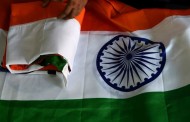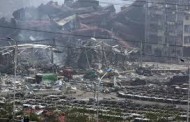Wanna know who can be the new age Gabbar, Thakur and Basanti? Read on to find out the cast of Sholay 2015!
Before I even begin to reveal the casting of modern day Sholay, there are three things I need to admit. One, I am big fan of Ramesh Sippy’s Sholay. Two, I am aware of the fate of Ram Gopal Varma Ki Aag at box office. Three, I do agree that Sholay is one such cult classic which can never be remade successfully.
But on the occasion of 40 years of Sholay, I have a strong urge to revisit this cult classic with new age stars. Even though I know that Amitabh Bachchan, Dharmendra, Hema Malini, Amjad khan and Sanjeev Kumar’s performances can’t be matched, but the fanboy in me wonders how Sholay would have turned out if iconic characters of Jai, Veeru and Gabbar were not played by those in RGV Ki Aag. So without any delay, I reveal my choice of actors for Sholay 2015:
Ever since reports of Asin’s marriage has hit the web, we like many others have been eagerly waiting to hear more and more about her would-be husband Rahul Sharma. While we figured out he is the founder of Micromax and is supposedly planning to settle down in May 2016. We were yet to hear an official confirmation from either of the two! Looks like finally the day is here guys! Yes! Asin, in her recent interview has officially given out details of her wedding and how she met her real life Sanjay Singhania, all thanks to Akshay Kumar.
Akshay played a cupid between the two during the promotions of Housefull 2. They happened to meet on the same flight while heading for an event which was being organised by Rahul, who also turns out to be Akki’s best friend. Recalls Asin, “He(Rahul) was very simple and down to earth and that quality stuck with me. And then Akshay tells me, “I think you two will be good for each other. I was like what??? Where is this coming from?”
However, AK’s intuition did turn out to be right! Soon after 2-3 meetings, Rahul decided to meet Asin’s parents. Adds Asin, “Rahul came and met my parents and expressed his intention to them. He is very sorted and knows his mind clearly. And he tells them, ‘I would like your daughter’s hand in marriage.’ But I wanted some time. So with their permission we started to get to know each other.”
And now that they are finally ready to take their relationship to the next level, Asin officially announces her wedding date stating, “Rahul and I have been together for almost four years . I will get married by the end of this year.”
They rocked the stage at the festival…
Saif Ali Khan and Katrina Kaif are really busy promoting their upcoming film which releases this month. It’s about a suicide mission undertaken by a troop with a man in it ‘whom no one will miss’. That’s how Saif explained his character in the film. But you have to make sure that nobody misses this adrenaline-thumping adventure upon release and so the actors recently visited a college festival in Mumbai looking really attractive together. While Katrina looked ravishing, Saif was royally hot! Check out the pictures below!
The lovely lady in white enters like a dream..
One of the few peaceful districts in Jammu and Kashmir, Udhampur was recently besieged by two successive terrorist attacks, bringing the region back into the headlines. Whether it was the release of Masrat Alam, the proposal to resettle Kashmiri Pandits back in the valley, the new alliance, or the Armed Forces Special Powers Act (AFSPA), several controversies continue to linger.
Shujaat Bukhari, veteran journalist, writer and social activist, currently the editor-in-chief of the Srinagar-based newspaper Rising Kashmir, in his interview with Parth MN, talks about the reasons behind the discontent on the ground, the possible solutions and the role of the Indian state and media.
Udhampur has been a relatively peaceful district in the last decade. What do the two recent terrorist attacks indicate?
I think it is the absence of a political process that gives space to such incidents and the militants find a fertile ground for their activities. Yes, there is an increase in militant activities. The more worrying factor is that local educated Kashmiri youth are joining the ranks.
If the captured terrorist has been roaming in India for the last two months as he claims, doesn’t it point to a major security lapse?
That is a pertinent question. When the Army maintains zero tolerance on infiltration in Kashmir, but the captured militant says he was in the Valley for 45 days, it merits an answer as to where he was and how he got here.
We have also seen repeated instances of flags of ISIS and Lashkar being hoisted in the state. Do you think terrorist groups are exploiting the discontent?
The absence of political engagement on both tracks viz New Delhi and Islamabad and New Delhi and Srinagar leads to frustration, as the aspiration for resolving the Kashmir issue is a reality. Obviously, the youth give vent to their feelings by associating themselves with ideas that are quite distant to the ethos of Kashmir or for that matter, Islam. But the fact is that windows to other ideologies may open in case the political problem of Jammu and Kashmir is not addressed in right earnest.
What changes have you seen in Kashmir after the new government assumed power?
It is very difficult to judge a government so quickly. But the initial impression is they are not following the expected track. People voted Omar Abdullah out of power because they were frustrated. If this government follows the same path, the situation will worsen. People are cynical because they have seen the good period that Mufti Mohammad Sayeed had during 2002-05. But now, from day one, he has not been allowed to do anything political. When Masrat Alam was released there was a hue and cry, there was a controversy over Geelani’s passport as well.
The BJP and PDP seem to be at loggerheads with each other on these issues and in such a short time, their conflicts have come to the fore.
Both parties are poles apart, but they had no option, it was a tactical alliance. When PDP entered into agreement with BJP for government formation, one reason they cited was of liberal funding from the Centre. Where is that?
PM Modi visited Kashmir in mid-July where he announced a relief package. Have the flood victims been duly compensated?
It’s been a year since the floods last year, but nothing has been done to rehabilitate the lakhs of flood victims. The state seems to be choking and there is despondency all over.
Does it raise the question of the alliance breaking up?
I am not sure how long the coalition will last. But they have a compulsion to work it out, especially the BJP. They are in power for the first time in the state so they would want to make it work. But if they continue in this way, they will not be able to deliver anything tangible on the ground. Politics is the pivotal component behind the situation in the state.
One of the rare issues that the two partners are in consonance with each other is the proposed resettling of Kashmiri Pandits back in the valley. How do you look at it?
As far as the return of Kashmiri Pandits is concerned, nobody is against it. But there are two-three issues involved. If they return, where would they go? In a few rural areas, Pandits have their lands, orchards intact. But as far as the urban centres are concerned, most of the Pandits have sold their properties. So they will not be able to come back to where they originally resided.
The government has mooted the idea of building townships for them.
There is no point in creating ghettos, as they already exist in Anantnag, Sheikhpura etc. These clusters were created two-three years back, when the government announced a special job package for about 4,000 Pandits. But the long-term rehabilitation, or I would say, re-assimilation of Pandits, is a challenging task and cannot be seen in isolation. Building townships will not send a right message. The counter-argument to this would be “then they would not come back at all”. While it is a pertinent argument, as a Kashmiri, I would say the government needs to take the civil society of the existing Kashmir and the genuine representatives of the Pandits on board.
What do you mean by “genuine representatives”?
Not the usual suspects who have been thriving on the politics of division on both sides. It’s not to say that those groups are to be rejected completely, but it is important to have a comprehensive mechanism of consultation between Pandits and Muslims. They should be taken on board for arriving at a consensus on how this issue is to be dealt with.
There is massive mistrust between the two communities. How do you expect Pandits to trust their old neighbours after what happened in 1990?
We, as a society, are for their return. Whatever happened in 1990 was the darkest chapter in Kashmir’s history. Who is responsible and who is not is a different debate. There are many theories and perceptions. But is it wise to address this issue in isolation? There is mistrust between the two communities, but there are also good examples of bonhomie as well. When I go to Jammu and meet my old neighbour, classmate, or father’s friend, we are cordial and comfortable with each other. But largely, yes there is a gap. Because there has not been any effort to bring them to the table for discussion.
Do you think the idea defeats the purpose of integration?
Thrusting townships on Kashmiris will further aggravate the situation and divide the society. It defies the idea of integration, it defies every logic for that matter. Through townships, Pandits will return to Kashmir, not to their homes. Pandits are well-settled outside Kashmir. If you want to give them summer houses, it is fine. But do not call it integration. If you are serious about their re-assimilation into the society, there has to be a comprehensive strategy and consultation of the civil society on both sides.
Are the Pandits falling in the trap of the Sangh agenda?
Maybe they are. The resettlement plan is politically motivated. It has been BJP’s slogan and they have always been on the side of right-wing Pandits who have been talking about a separate homeland and all that.
Interestingly, the younger generation that did not experience the exodus, does not seem too keen to come back.
Youngsters would also like to come back to their roots, provided they get avenues. There is a serious unemployment crisis here. Why would they want to come back when there are better opportunities elsewhere in the country?
Apart from a dialogue between the two estranged parties, what is a comprehensive strategy to ensure a secure atmosphere in Kashmir?
Security can only be ensured when the civil society is robust and mingles with each other. But the fact is that security is still a concern. Do you think I am safe here? Nobody is. To ensure safety, one needs to do broader work. One has to create an atmosphere of peace and normality here. This can only happen if India engages with Pakistan. When the peace process existed from 2003 to 2008, there was visible change on the ground. When you talk to Pakistan and the people of Jammu and Kashmir, there is a favourable atmosphere. But on one hand, you do not engage with Pakistan because they are “rogue” and you also refuse to talk to any alienated section in Kashmir, including Hurriyat, because they too are “rogue and Pakistani agents”. Without engaging with them, the state will continue to be hostile.
You mention the peace process existed from 2003 to 2008, and that there was visible change on the ground. What changed after 2008?
I think first the ouster of Pervez Musharraf and then the Mumbai attacks changed everything. Till today, no serious effort is being made to pick up the thread from where it was. How long will you live with the hangover of Mumbai and Samjhauta Express? You need to overcome that and move forward. War is no solution.
As far as talks are concerned, is it not important for Pakistan to be as cooperative? On the one hand, Pakistan released our fishermen, on the other, there are instances like Udhampur and Gurdaspur where reports indicate Pakistan’s involvement. Should the talks take place on August 23-24?
I think both the countries have to be responsible. If Pakistan is lacking in controlling such elements, it is bad and they need to show that they are taking practical steps. But India also needs to show sincerity. I think calling off the Foreign Secretary level talks last year was a bad decision and put a break on the process.
What is it about the attitude of India towards Kashmir that worries you?
An individual like Masrat Alam is released and he is called a terrorist. There is uproar over a leader who wants to travel on a passport. On the one hand, you create all the fuss and on the other, you moot the idea of resettling Pandits, pretending things in Kashmir are normal. The fact is, you are not willing to concede the smallest space for dissent in Kashmir. It is imperative for India to engage with Pakistan and the discontented sections of Kashmir for any resident to lead a peaceful life here. Unless that process of reconciliation, peace and dialogue is initiated for the permanent resolution of Kashmir, you cannot have a peaceful atmosphere here. Today there is complete deadlock. As of now, the Indian government is showing contempt towards the people of Jammu and Kashmir who have problems with India. It is virtually disregarding them by ignoring their opinions. It is important to recognise the political disconnect and dissent on the ground in Kashmir, which the Indian state refuses to do.
The issues of Masrat and Geelani were taken up by the media. Is the media also culpable?
The jingoistic and ultra-nationalist Indian media has been misinforming the public at large in India. They are not doing any service to the country by giving much hype to petty issues. If they are calling Mufti “pro-Pak”, then who is Indian in Kashmir for them? It is a question they need to answer.
Were the two issues blown out of proportion? Also, is it not expected for any Indian to express disillusionment if Pakistan flags are raised in Kashmir?
It was blown out of proportion. Flags of Pakistan have been raised from the last 67 years. Has anything changed on the ground? Media has every right to raise issues and concerns of the public, but it has no right to dictate.
Do you think Masrat deserved to be out?
When Afzal Guru was hanged, you said the Supreme Court has given the verdict. Despite the fact that he was 27th on the list. Now when the same Supreme Court says Masrat’s detention is unjust, you refuse to accept it. You cannot cherry-pick. It is the same Supreme Court of India, not Pakistan.
You mentioned the fact that there is discontent towards India among Kashmiris in the valley. Do you think it has anything to do with unemployment? Or is it completely political?
I do not think stone pelting by Kashmiri youth has anything to do with unemployment. There is a huge political discontent on the ground and a Kashmiri youth does not reconcile with being an Indian. That is the reality on the ground. The youth are alienated from India. Unemployment could be a factor but we cannot mix the two issues. The dominant reason is the discontent, especially that the educated Kashmiri youth has towards the Indian state. Even if you give jobs, the political problem will remain as it is. You have to first accept that it is a political problem. And it has to be addressed through political means.
Does the discontent stem from the manner in which the Indian army treats civilians?
AFSPA is a black law and it has been unnecessarily thrust upon the people of Kashmir. There is no reason why it should not be withdrawn. It defies logic. Tripura has done it recently and J&K should follow suit. It gives unbridled powers and immunity to the Army and paramilitary forces to kill anybody and not be held accountable. You cannot solve the Kashmir issue through the barrel of the gun.
During the election campaign, parties promised many things. One of the most important was the release of people languishing in jail. What has happened on that front?
They released one individual (Masrat Alam) and you have seen the hullaballoo (laughs). But they must adhere to their promises and consider releasing youngsters who are languishing in jail and have been undertrials for a long time. Especially those boys who are booked under the Public Safety Act, which was also declared as a ‘lawless law’ by the Amnesty International.
The atrocities by the Army, or the Public Safety Act that allows authorities to put anyone jail, seem to be at the core of resentment of Kashmiris, especially youngsters. Apart from the two reasons you mentioned, there are examples of Kashmiris being discriminated in various parts of India as well. Whether being denied a flat, hotel room, persecuted after a cricket match; these are all offshoots of the larger discrimination. There are examples of Kashmiris languishing in jails in various parts of India without any trial. Someone told me about a Kashmiri who has been implicated in a fabricated case in Gujarat. He has not been allowed access to his lawyer. In this context, how do you expect a Kashmiri youngster to raise an Indian flag in Kashmir?
Rio de Janeiro, Aug 16 (IANS) Competitors have praised the condition of the Guanabara Bay in the final 2016 Rio Olympics sailing test event here.
More than 300 sailors from 52 countries and regions took part in the regatta on Saturday and which will run until next Saturday, reported Xinhua news agency.
The iconic venue resembled a postcard image as competition began under a cloudless sky against a backdrop of Sugarloaf mountain and the Christ the Redeemer statue.
The event comes amid media reports that untreated sewage and rubbish in the bay could pose a health risk to athletes.
“The water is excellent. There is no reason to complain about anything and that’s coming from somebody who usually complains a lot. The weather helped too. It’s been a while since it rained,” said Brazilian sailor Ricardo Winicki.
Rio’s city government has deployed 10 eco-boats to scoop garbage from the water’s surface before and during the event. Large nets have also been placed in strategic parts of the bay to prevent the flow of rubbish from connecting rivers.
United States coach Jay Glaser said the conditions were no more difficult than those encountered in other parts of the world.
“In San Diego, when you sail, you get seaweed. In Newport, Rhode Island, it’s grass, in Queensland, Australia, you’re worried about box jelly fish. This is a great place to sail, super-scenic, really challenging,” Glaser said.
France’s Jonathan Lobert, winner of the Finn class bronze medal at the 2012 London Games, also lavished praise on the bay.
“It’s very nice for the sport to be in the heart of the Olympic city because sailing is usually a little bit away,” he said.
Organisers say the sailing courses to be used for the Olympics will be in deep water where open sea currents ensure constant high water quality.
New Delhi, Aug 16 (PTI) With the end of the first quarter earning season, stock markets will look at global events, monsoon rains, movement of rupee and investment trend by overseas investors for further cues, say experts.
Stock markets may see positive momentum going ahead amid hopes of a rate cut based on healthy macroeconomic data.
“July WPI contracted for ninth straight month and cooling of CPI inflation has fuelled the rate cut expectations that RBI Governor may cut rates before its policy in September,” said Gaurav Jain, Director, Hem Securities.
Deflationary trends continued for the ninth month in a row in July with wholesale inflation plunging to a historic low of (-)4.05 per cent.
The WPI number follows retail inflation (CPI) data, which had slipped to a record low of 3.78 per cent in July.
“Global clues will continue to dominate market sentiments.
All eyes will be on Greece ahead of debt repayment deadline of Thursday,” said Vikas Singhania, Executive Director, Trade Smart Online.
“Any further move from China to devalue Yuan will spark fears of a global currency war. The movement of rupee against the dollar and crude oil price movement will also dictate trend on the bourses in the near term,” he added.
Progress on reforms is important for India’s economic recovery, an expert said.
“Movement of index in near-term will depend on further reform initiatives to be taken by the government,” said Vivek Gupta, CMT ? Director Research, CapitalVia Global Research.
Due to disruptions, the government could not get the GST Constitution Amendment Bill passed in the Monsoon session of Parliament which ended on Thursday.
Over the past week, the Sensex fell by 169 points to 28,067.31.
Srinagar, Aug 16 (PTI) Chief of radical women’s outfit Dukhtaran-e-Millat, Asiya Andrabi, has stoked a controversy by addressing a rally organised by Mumbai mastermind Hafiz Saeed-led Jamat-ud Dawa in Pakistan.
In her telephonic address to the rally, organised in Lahore on August 14, Andrabi greeted the people of the neighbouring country on their Independence Day.
Saeed was seen sitting on the stage during Andrabi’s address.
Hours before her address, the DeM chief had celebrated Pakistan’s Independence Day at her residence.
Dozens of DeM activists had gathered in Bachpora area of the city where they celebrated Pakistan’s Independence Day.
Andrabi’s telephone address triggered a controversy with BJP’s Jammu and Kashmir unit president Jugal Kishore demanding strict action against her.
“These are instances of treason and will not be tolerated at all…Asiya Andrabi should be arrested.I expect that she would have been arrested by now and a case of treason would have been registered against her.”
Congress spokesman RPN Singh demanded that concrete action should be taken against those working against the state.
“The NSA-level talks are slated to be held on August 23-24. A lot of talks have happened and the government claims about a breakthrough. But, with the terrorists attacking India, there is an urgent need to take concrete action against them, whether it is Hafiz Saeed or Zaki-ur-Rehman Lakhvi via these talks with Pakistan.”
JKNPP leader Harsh Dev Singh noted that this was not the first time that Andrabi has indulged in such acts.
“I don’t understand why these people have been given a long rope by the present government in J-K. They ought to have booked the culprits by now, because it’s not the first time that Asiya is indulging in such kind of anti-national activities… So, we feel unnerved by the government’s approach in taking action against people like her.”
Andrabi had earlier also celebrated Pakistan’s National Day on March 23 this year and hoisted the flag of that country, following which the police had registered a case against her under the Unlawful Activities Prevention Act.
Tianjin, Aug 16 (PTI) The death toll in twin blasts in this eastern Chinese port city today rose to 112 after authorities recovered more bodies from the debris, as 95 people are still missing, officials said.
“By 9:00 am (0100 GMT) on August 16, the total number of deaths was 112,” said Gong Jiansheng, the deputy chief of the city’s propaganda department.
More than 700 people were injured and 85 firefighters and 10 others are still missing since the blasts shook the area.
So far 21 fire firemen, who were among the first batch of firefighters rushed to put off the fires at the warehouse before the explosions, were killed. The deaths of firefighters is the highest so far in a tragedy in China’s recent history.
Members of the families of the?missing firemen have been agitating calling for more information about their dear ones.
About 722 people are hospitalised of which 58 are in critical or serious condition.
An Indian employee of a firm based in Tianjin was injured and has been treated for non-lethal injuries, officials said.
A total of 47 people have been rescued, said Zhou Tian, head of the city’s fire department.
Officials said the fires have been put out and no further explosions were expected.
Some minor explosions followed by fires were reported from the area yesterday, three days after the massive blasts.
A man in his fifties was rescued from the blasts site yesterday by specialised anti-chemical soldiers who found him 50 meters away from a burst point. He was conscious and could talk and was rushed to a hospital in the city.
A total of 70 specialised anti-chemical soldiers entered the core area of the blasts site yesterday to search for possible lives for the first time after the blasts.
Meanwhile, 1,100 troops were combing nearby residential quarters home by home to search for potential survivors.
Wen Wurui, head of the Tianjin municipal bureau of environmental protection, said environmental specialists are taking measures to prevent air and water pollution caused by chemicals leaked from the blasts, specially after the confirmation of the sodium cyanide at the blasts site.
Nuclear and biological detections teams yesterday found evidence of sodium cyanide, a deadly chemical that emits highly toxic gases if it is burnt or comes in contact with water along with other chemicals.
President Xi Jinping has asked officials to learn from the “extremely profound” lessons paid for with blood.
Xi said in written instructions that the Tianjin blasts and a string of serious accidents recently exposed severe problems in the work safety sector, and authorities must always keep “safe growth” and “people’s interest first” in mind to avoid such accidents.
He demanded a better emergency response mechanism.
While confirming the presence of cyanide, state-run CCTV said the substance in the form of crystal powder can be rapidly fatal if it is inhaled or injected as it interferes with the body’s ability to breathe oxygen.
New York: An investment adviser of Indian descent has admitted to a $9million-fraud involving Facebook stock Thursday, the Federal Bureau of Investigation announced.
Gignesh Movalia, the founder of OM Global Investment Fund, pleaded guilty in Tampa before Federal Magistrate Judge Anthony E. Porcelli to one count of investment advisor fraud. He is to be sentenced later.
Federal Prosecutor A. Lee Bentley III said Movalia solicited investments in his fund claiming that he could get shares of Facebook before its initial public offering. He raised more than $15 million, of which $9 million was buying Facebook shares. However, Bentley said in a statement, Movalia used the $9 million for other investments and hid this from the investors.
Ultimately, OM Global Investment Fund lost $9 million and went broke, Bentley said.
Last year in June in a separate civil suit filed by the Securities and Exchanges Commission, Federal Judge Jose E. Martinez in Miami ordered Movalia and OM Investment fund to pay up $1.729 million in illegal profits and fined him $300,000.
In additon to the Facebook stocks fraud, the SEC had also accused him of making improper loans to third parties and creating an institution with a name similar to OM Investment Funds to evade monitoring by a Florida state court and using it to solicit funds.
New Delhi: After getting a reprieve from the Bombay High Court on Maggi ban, Nestle India has said it is confident of defending the Rs 640-crore class action suit filed by the government against it before NCDRC.
“… We are confident of defending ourselves when called upon to do so,” a company spokesperson said in an e-mailed response.
He said the company was disappointed with the “unprecedented step of filing of a complaint before the National Consumer Disputes Redressal Commission (NCDRC) against Nestle India”.
When asked if Nestle India plans a counter suit against the government, the spokesperson said: “We will study the issue when we receive the formal details.”
He said based on media reports, the complaint by the government “makes similar allegations which were made to ban the product on June 5, 2015. These issues were awaiting judgement by the Hon’ble Bombay High Court.”
Last week, the Bombay High Court had lifted the ban slapped by food regulators on nine variants of Maggi noodles in India in June while asking Nestle to go in for fresh tests.
On the other hand, the Consumer Affairs Ministry filed a class action suit against Nestle India seeking about Rs 640 crore in damages for alleged unfair trade practices, false labelling and misleading advertisements.
It was for the first time that the ministry dragged a company to the National Consumer Disputes Redressal Commission (NCDRC) using a provision in the nearly three-decade-old Consumer Protection Act.
Reiterating that Nestle India remains committed to working with FSSAI, FDA Maharashtra and other stakeholders, he said: “We hope that this issue will be resolved soon.”
On the company’s preparedness to bring back Maggi in the market, he said: “The process of bringing Maggi noodles back on the shelves is lengthy and complex. It requires alignment with several stakeholders, including our suppliers, distributors and retailers, among others, as well as our continuous engagement with the authorities.”
He further said that the Maggi noodles business, which is an important part of Nestle India “is currently at a standstill”.
“It is Nestle India’s endeavour to get Maggi noodles back on the shelves as soon as possible for the benefit of our consumers,” the spokesperson said.
In June, central food safety regulator FSSAI had banned Maggi noodles, saying it was “unsafe and hazardous” for consumption and the company also withdrew the product from the market.















Recent Comments